About
The European Association for Architectural Education (EAAE) is a non-profit organisation dedicated to promoting high-quality architectural education. By focussing on the next generation of architects, it provides long-term support in advancing building culture in Europe and beyond. Since 1975 the EAAE offers a rich sequence of ongoing activities and annual conferences. By doing so, it creates and nurtures academic networks and provides a vivid forum for exchange and forward-oriented thought.
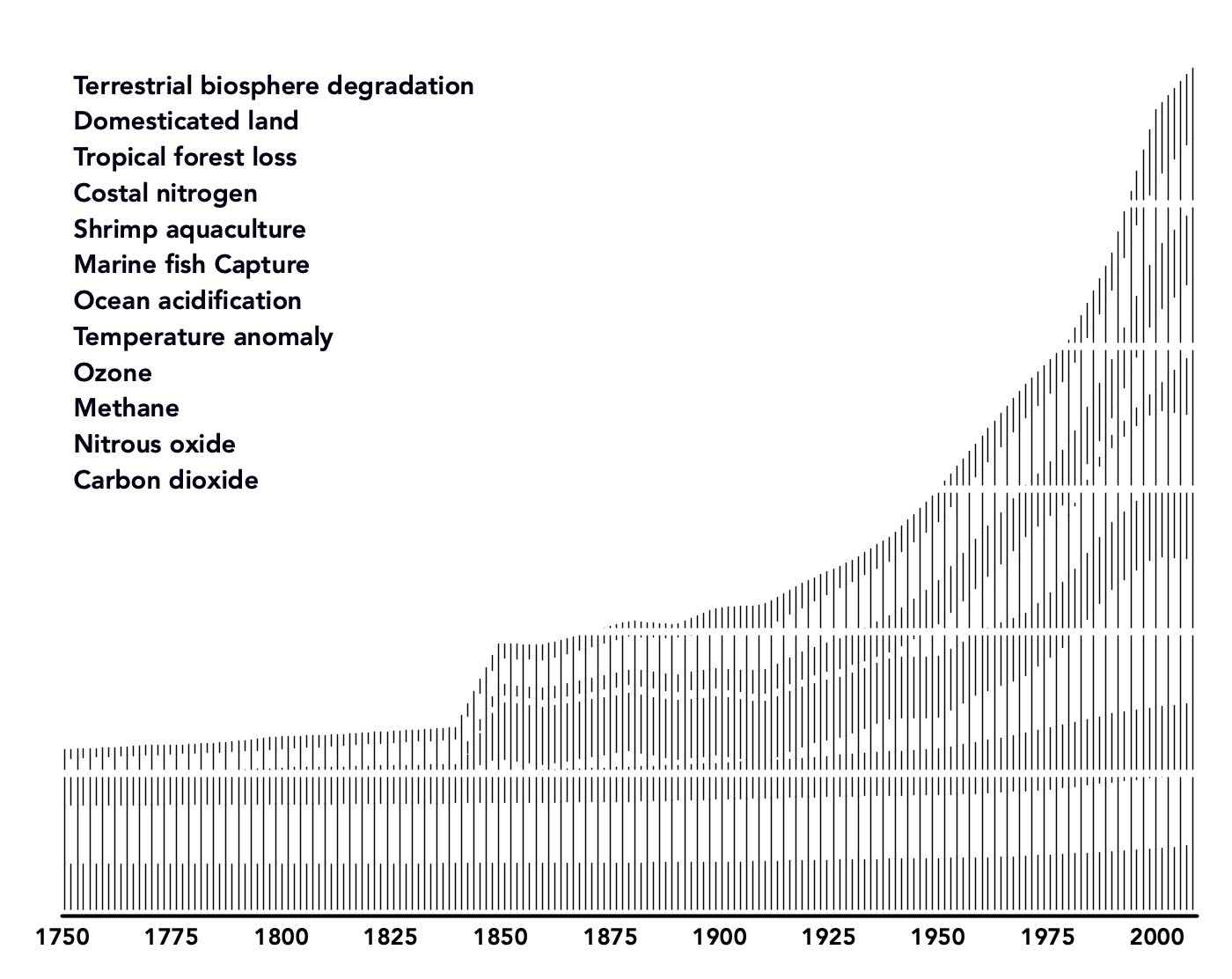
This year the 2024 EAAE conference will be staged in Münster at the FH Münster - University of Applied Sciences, the MSA | Münster School of Architecture. Architectural education today is in transition. The great acceleration, the drastic increase of measurable parameters of human activity requires the examination of vast quantitative effects of spatial development, planning and architectural production. This is also true for qualitative design aspects the related professions are entrusted with.
Composition and structure, materialisation and haptic characteristics, light and shade or dimension and scale all inform the design of buildings. These typical design parameters as such are incapable of registering urgent issues of climate change or the availability of resources. In addition, the relevance of architectural interventions comes into play and requires a serious deliberation on the responsibilities of future architects. This is why the organization committee at the MSA chose the topic LESS IS MUST for the EAAE Annual Conference 2024 in Münster.
Venue
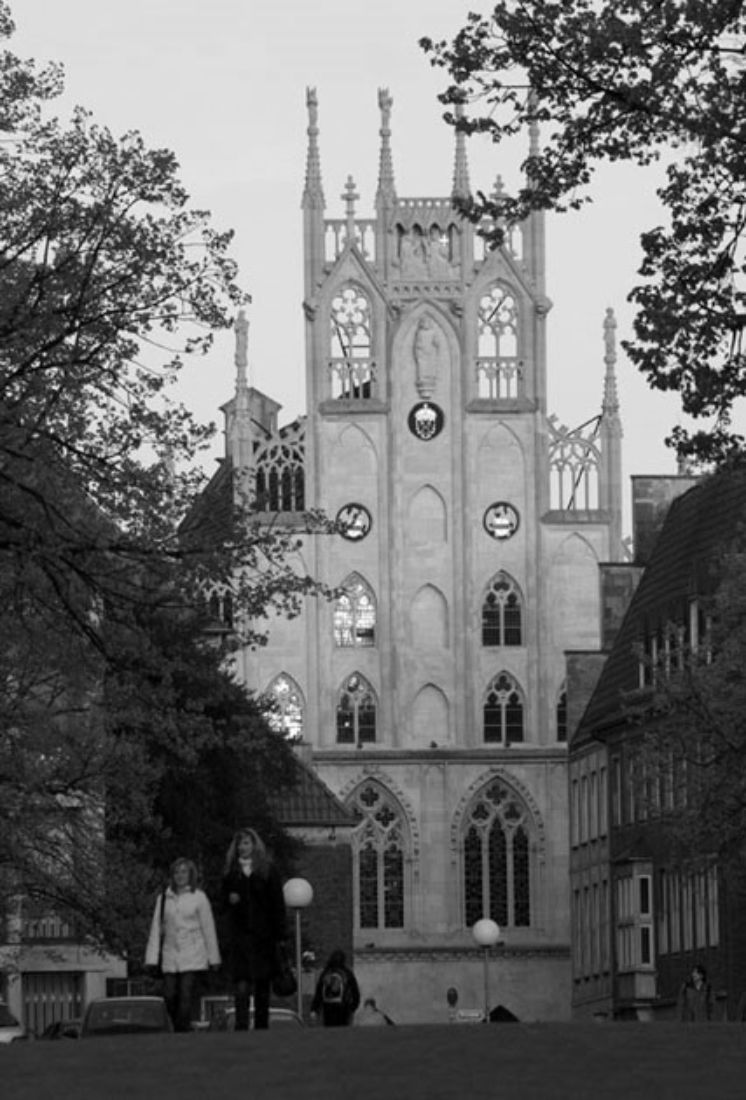
Münster is a renowned German university city. Home to nine institutions of higher education, the city is a
vibrant hub of knowledge and innovation. 60,000 students make up more than one fifth of its population and form
a constantly self-renewing share of local youth – Münster is a city that is forever young.
As part of the
FH Münster - University of Applied Sciences
, the
Münster School of Architecture
is situated on the Leonardo
Campus. Alongside the Arts Academy and the Münster School of Design, it forms a creative nexus within the city
and its surroundings. The student community actively contributes to Münster's lively cafes, events, and creative
projects, embodying the city's spirited and progressive identity.
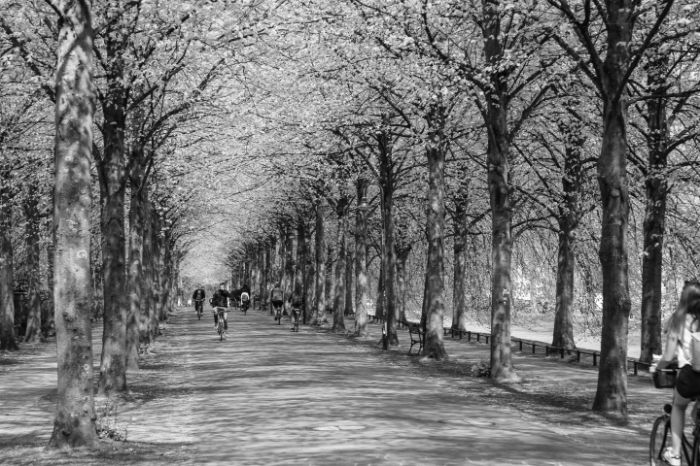
In Münster, the vehicle of choice is the bicycle. The green Promenade – formerly occupied by ramparts that
surrounded the city – serves as the main artery of local cycling culture. This scenic route, encircling
Münster's centre, is more than just a pathway. It is also a symbol of the community's commitment to a lifestyle
of biking, intertwined with the urban experience. The Promenade is a place for social interaction and
connectivity, bringing together individuals from all walks of life as they navigate through lush greenery and
historic backdrops, contributing to a lively atmosphere that defines the city.
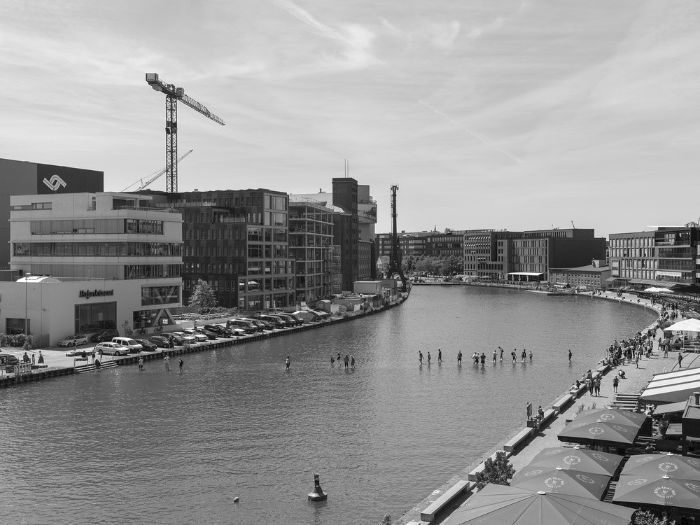
Münster’s art and cultural scene also play a significant role in defining its identity. Numerous galleries and
museums can be found here. The most famous art event is the
“Skulptur Projekte“
(Sculpture Projects), held every
ten years. With works of art inside museums and across public space, the city becomes a canvas for both
historical and contemporary expressions of creativity. These cultural offerings, coupled with lively street
performances, cafes and literary get-togethers, weave a rich tapestry of artistic and social engagement that
resonates with both residents and visitors.
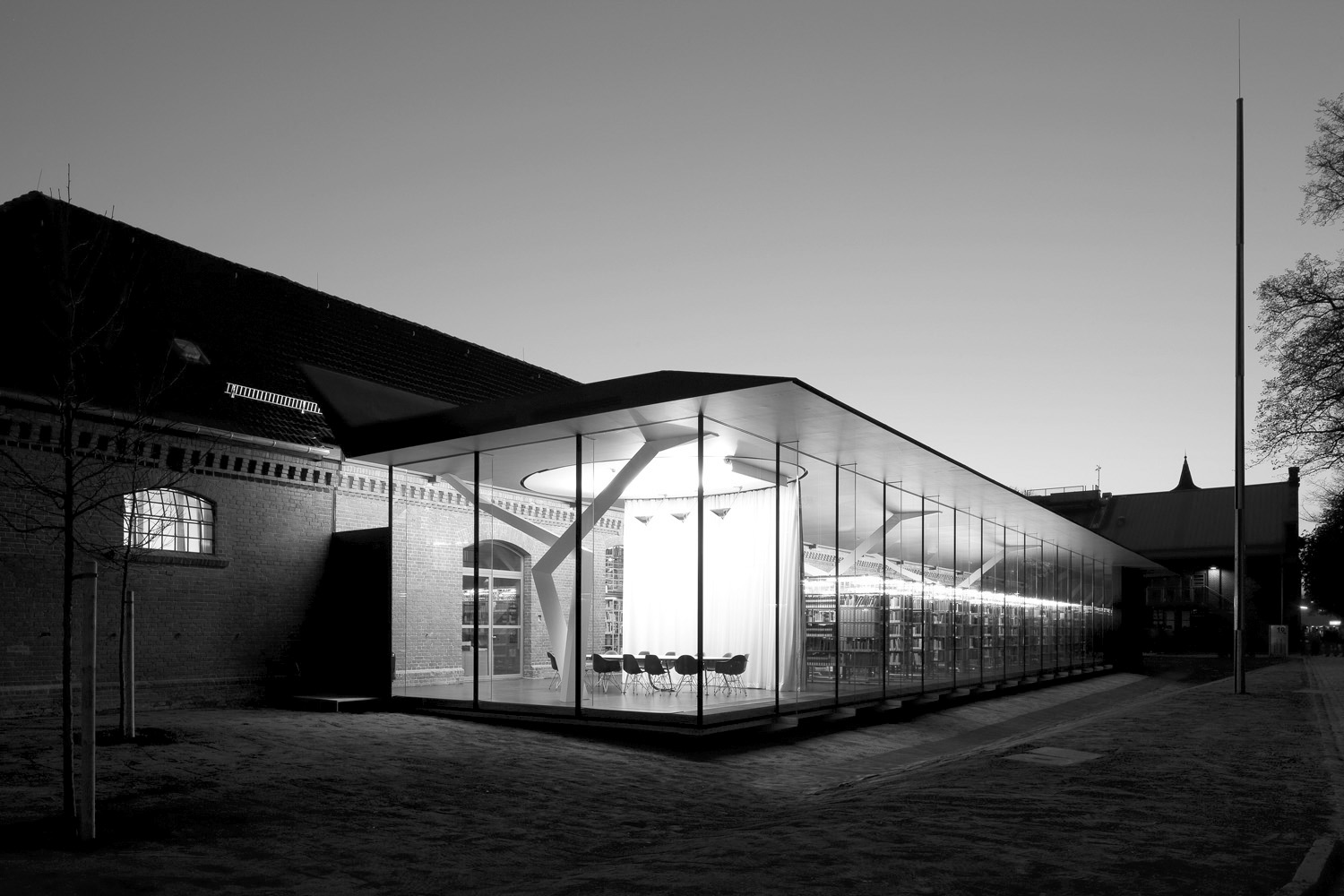
With a nod to its historical roots, Münster's past, dating back to the Middle Ages, is palpable in the
architecture and cobbled streets of the old town. Although more than 90% of inner-city buildings had been
destroyed in 1945, post-war reconstruction respected the medieval urban structure and envisioned a culture of
preservation combined with a sensitive form of modernism. For instance, the Prinzipalmarkt, the Gothic town
hall, but also the
Museum for Art and
Culture are all famous monuments
that express the modern vibrancy of
Münster against a backdrop of significant historical depth.
Don’t miss the well appreciated architectural book store in Münster: It is called Extrabuch and is situated in
the heart of the City at the street Spiekerhof 23 in the immediate vicinity of the central Saint-Paulus-Dome.
Books in relation to the conference and the invited speakers are available in stock besides a reasonable well
selected choice of up-to-date publications. Also view the shop on Instagramm.





